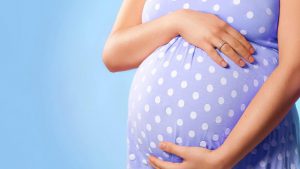
Disordered Eating during Pregnancy and Beyond
Disordered Eating and Pregnancy
Approximately 7% of expectant mothers fit the criteria for an eating disorder. Having a baby can be an extremely stressful time. Emotionally taxing as it is, pregnancy is a time when your body is the centre of attention, changing and expanding in ways beyond your control. Women are encouraged to keep an eye on and control their food habits and physical changes during this period. This may have the unintended consequence of promoting the recurrence of compulsive behaviours and thoughts around eating. Researchers have also found that the weeks immediately following birth are particularly risky for disordered thoughts and eating behaviours to re-emerge or worsen.
Emotionally taxing as it is, pregnancy is a time when your body is the centre of attention, changing and expanding in ways beyond your control. Women are encouraged to keep an eye on and control their food habits and physical changes during this period. This may have the unintended consequence of promoting the recurrence of compulsive behaviours and thoughts around eating. Researchers have also found that the weeks immediately following birth are particularly risky for disordered thoughts and eating behaviours to re-emerge or worsen.
Our Study
The team at Manchester, lead by Chantelle Ecob as part of her Clinical Doctorate, have been conducting a series of studies to better understand the reasons for this and learn how to better support people with a history of eating disorders during the postnatal period.
In one study we interviewed women with who have given birth and have a current or past eating disorder. Early findings reveal why the postnatal period is both a vulnerable time for people with a history of eating disorders, but also an opportune period for recovery.
- It is a very stressful time with sleep deprivation, social isolation and significant loss of routines and changes to identity.
- Eating disorders have been described as providing control and structure when experiencing the increased emotional distress of motherhood.
- Physical changes to the body may invite unwanted attention and triggering comments from others.
- There is social pressure to cope well and present in a particular way.
- Breast feeding creates further pressures.
- The focus from health professionals and friends and family shifts at this time from the mother to the baby, so emerging problems can be easily missed.
However, introducing a baby into the mother-eating disorder relationship can provide an alternative perspective and increase motivation to get better. Attuned emotional and practical support from family, friends and health professionals is important in supporting the mother to increase self-awareness, self-compassion, and self-confidence.
We are also systematically reviewing the guidance that is available for clinicians about how to assess and support people with eating disorders during pregnancy and postnatal period. Key findings include the importance of early detection, thorough assessment, and continued monitoring.
What Now?
The findings across these studies invite some important recommendations for friends and family, health professionals and women. In this podcast, Chantelle Ecob talks about the project.
Need Support?
If you have concerns about eating disorders you can find advice and support here:
About the Authors:
The project is a collaboration between MCHP and Greater Manchester Mental Health NHS Trust. The team members are Chantelle Ecob, Debbie Smith, Sarah Peters, and Zoe Tsvios.






0 Comments